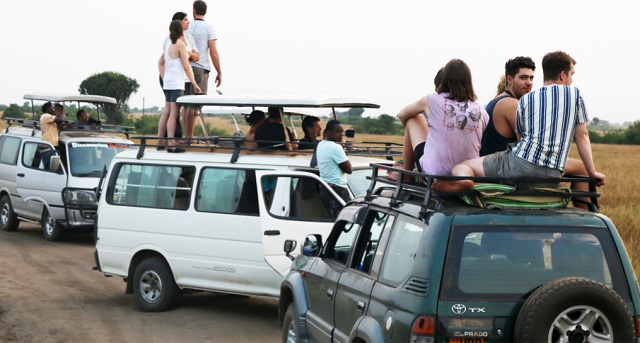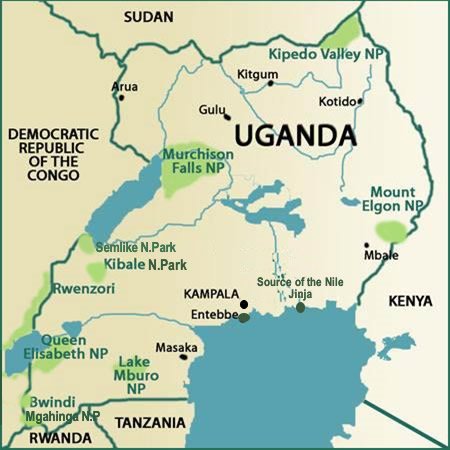
TOURISM: ‘Uganda cannot just sit back and wait for the crisis to be over’
Kampala, Uganda | RONALD MUSOKE | If the COVID-19 pandemic didn’t happen this year, this was supposed to be a “super year” for Uganda’s tourism industry.
“By November, last year, we already knew that we would have a good year and by February, this year, we were already overwhelmed by bookings from our clients,” Amos Wekesa, the executive director of Great Lakes Safaris, one of Uganda’s leading tourist agencies told The Independent on July 31.
Three years of sustained marketing of the country by international firms the government hired in 2016, had moved Uganda beyond depending on the so-called high seasons (June- August and mid-December to February).
This, Wekesa told The Independent, is because the marketing companies had started tapping into the “baby boomer” segment of the western world with money to spend on holidays.
But Wekesa says he started receiving calls from his international clients cancelling trips. They cited the global coronavirus pandemic. Wekesa says his company has possibly lost business worth at least US$6 million over the last six months. He is not the only one losing money.
When The Independent recently visited Ndere Cultural Centre; a sprawling nine acres in the northern Kampala suburb of Kisasi, its two amphitheatres and a courtyard, where in the good old days guests would be entertained at least three days a week by the group’s energetic dancers, were all quiet.
Ndere Cultural Troupe has been promoting Uganda’s culture for 36 years. But its gigantic drums, in an array of colours, stood silently opposite the reception area. Several of the group’s earth brown cars that in the past used to ferry visitors looked like they have not been driven in months.
Stephen Rwangyezi, the founder of Ndere Cultural Centre told The Independent on July 31 that what COVID-19 has done to the centre can be compared to a farmer losing a herd of cattle to lightning.
Rwangyezi says things started falling apart on March 18, just three days before President Museveni announced the closure of the borders to control the coronavirus from fast spreading.
Eight of the Ndere troupe members had abruptly returned from the United States where they had been scheduled to perform for six weeks. The shows were suddenly cancelled and he says they lost at least US$ 200,000; including the US$ 24,000 that went into preparations for the trip.
“It hit us when we were not prepared,” he says.
He says the centre was doing three shows a week and each show would attract at least 200 guests 80% of whom were international. The centre also used to hold conferences and weddings.
Peter Rujabuka who runs Rweteera Safari Park in the western city of Fort Portal also started this year in high spirits. In mid-March, Rujabuka who has been in the tourism business for the last five years expanded and opened a new property in the mid-western town of Hoima. Seven days later, the property was closed indefinitely when Uganda registered its first COVID-19 patient and the government closed its international borders and Entebbe Airport.
In a matter of days, Rujabuka’s investment went to waste. He told The Independent that he has laid off his 14 workers who were mainly surviving on tourism; especially the tour guides. With no more income coming in, he says he has found maintaining his properties hard and reckons he has lost about US$40,000.

Edward Asalu, the chief warden of Kibale National Park says that August is usually the climax of tourism’s “big season” which starts around June.
“We would be busy at this time of the year,” he told The Independent. But this year is different. That is because Kibale is home to mostly primates, and tourism is still prohibited over fear that viruses could jump from humans to our cousins; the apes.
“We are still locked down because of the type of animals we have and we are just monitoring and doing habituation work,” he says. The park last received tourists shortly before the president closed the airport in late March.
Re-opening starts
In June, the government re-opened the national parks for tourism amidst the pandemic. The Uganda Wildlife Authority (UWA) said all the savannah national parks would open for tourism after Standard Operating Procedures (SOPs) have been put in place to avoid the spread of COVID-19 in the protected areas.
A boat ride today on the #KazingaChannel, a dominant feature of the picturesque #QueenElizabethNationalPark, marked a key highlight of the visit of EU Ambassadors currently on mission to assess the impact of critical challenges, including #COVID19 on the tourism sector in Uganda. pic.twitter.com/i8KrlXbfIc
— EU in Uganda (@EUinUG) July 25, 2020
Marking the end of a visit to Kanungu, Kasese & Fort Portal, our 🇪🇺Ambassadors briefed 🇺🇬 press today on observations from their mission assessing the impact of #COVID19 on tourism in UG & stated, despite the grave challenges, opportunities exist to support the sector bounce back pic.twitter.com/1bAfa3iJDF
— EU in Uganda (@EUinUG) July 26, 2020
But Uganda’s borders, including Entebbe International Airport remained closed as one of the government’s measures to avoid importing COVID-19 cases and tour operators are now focusing on increasing domestic tourism.
In mid-July, UWA unveiled several incentives that the conservation managers hoped would revive the tourism sector. Sam Mwandha, the UWA executive director, reels of a raft of incentives but Cuthbert Baguma, the former executive director of the Uganda Tourism Board told The Independent that the government needs to bring more concrete rescue interventions.
“Most of these businesses are small and medium scale enterprise, how are they are going to be cushioned?” he said.
Angie Genade, the executive director of Ziwa Rhino Sanctuary told The Independent on July 30 that COVID-19 has had a 100% halt in income for the sanctuary considering that the sanctuary relies on international visitors.
About 45% of the sanctuary’s 150 staff are at home without pay and the rest are on half-pay, she told The Independent.
“If it carries on for much longer, I don’t know what we are going to do because it is really difficult at the moment,” she said.
Even after restrictions were relaxed in June, the sanctuary gets only a handful of visitors who cannot sustain the sanctuary’s staff and the 30 rhinos.
Ngamba Chimpanzee Sanctuary on Lake Victoria and the Country Lake Resort Garuga have taken hits too. In some cases, Lake Victoria flooding has been added trouble.
Martha Nansamba, the marketing manager of Ngamba Chimpanzee Sanctuary told The Independent that the sanctuary which is home to Uganda’s orphaned chimpanzees is struggling to find money. She says the sanctuary gets 90% of its revenue from international visitors and 10% from foreign residents.
Emma Ssebugwawo, the guest relations and marketing manager of the Country Lake Resort Garuga told The Independent that his family property suffered on two fronts.
First, the closure of the hospitality industry meant that visitors to the resort stopped suddenly and then the lake sunk, destroying close to one-and-half acres of the beachfront property.
He says most of the visitors to the resort are Ugandans but the resort is not receiving as many as it would around this time of the year.
At Entebbe International Airport, the story is no different. Vianney Luggya, the publicist for Uganda Civil Aviation Authority told The Independent on July 29 that the biggest revenue comes from passengers.
He said before coronavirus, traffic at Entebbe had been growing steadily over the years. Last year, the airport recorded about 1.98 million international passengers; a rise from the 1.84 million recorded in 2018 and the 1.65 million recorded a year earlier. This year they hoped to pass the two million mark.
 The Independent Uganda: You get the Truth we Pay the Price
The Independent Uganda: You get the Truth we Pay the Price






The situation is worse, hotel rented properties have been forced to closed down after more than 30yrs of operation, like Shangri-la hotel Nakasero.
we at Gorilla Safaris Uganda we had to refund all the guests money which they had sent to our bank accounts, worse some were used.